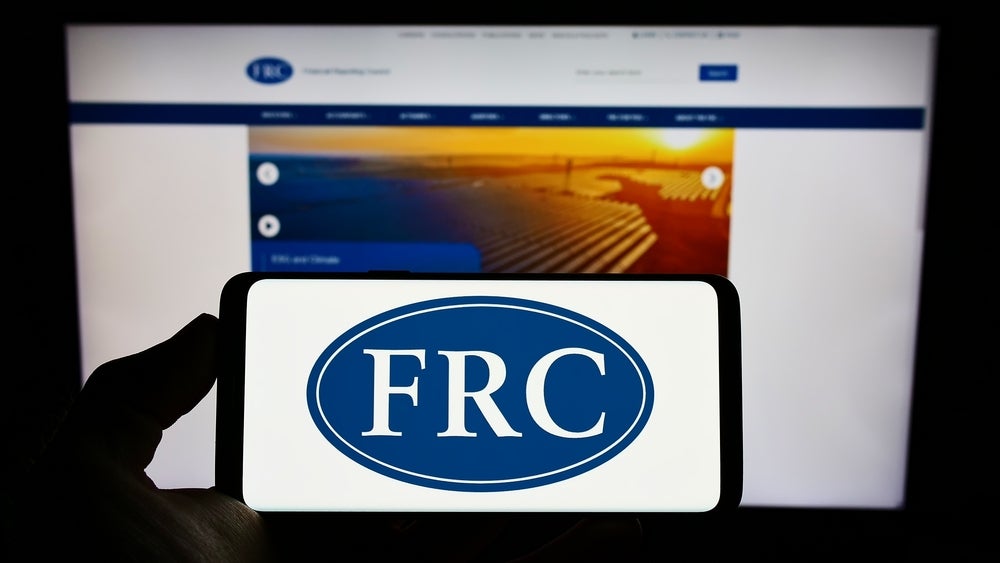UK FTSE 350 will have to put their audit out to tender at least every 10 years, according to the final decision by the UK Competition Commission (CC) investigating competition levels in the statutory audit market.
The CC initially suggested mandatory retendering every five years; however several letters of criticism were received by the CC calling for guidelines, which are more in line with the UK Financial Reporting Council’s (FRC) Corporate Governance Code prescribing retendering on a ‘comply or explain’ basis every 10 years.
Nevertheless, the CC final decision mandates retendering after 10 years with no ‘comply or explain’ option.
The CC said "no company will be able to delay beyond ten years, and the CC believes that many companies would benefit from going out to tender more frequently at every five years".
The CC said that if companies choose not to go out to tender every five years, the audit committee "will be required to report in which financial year it plans to put the audit engagement out to tender and why this is in the best interests of shareholders".
The CC also said it considered the FRC’s ‘comply or explain’ provisions carefully, but did "not think that a company should be able to delay tendering beyond ten years".
CC audit market investigation group chairman Laura Carstensen said: "After listening carefully, in particular to shareholders whose interests have been our main focus, and the FRC, we have decided that ten years is the appropriate backstop period for mandating that the audit engagement be put out to tender. Whilst we think many companies would benefit from a greater frequency of five years (and that an increasing proportion would benefit from going to tender as the period since the last tender process lengthens), we have accepted that requiring this in all cases could dilute the benefits we all want to see".
How well do you really know your competitors?
Access the most comprehensive Company Profiles on the market, powered by GlobalData. Save hours of research. Gain competitive edge.

Thank you!
Your download email will arrive shortly
Not ready to buy yet? Download a free sample
We are confident about the unique quality of our Company Profiles. However, we want you to make the most beneficial decision for your business, so we offer a free sample that you can download by submitting the below form
By GlobalDataCarstensen also said the mandatory tendering remedy will "open the door to other auditors who now have the chance to compete regularly for business and show they’re up to the mark".
"This will help them prepare for and counter any perceived lack of experience, resources and reputation which may have hindered them from winning FTSE 350 audit engagements in the past. In effect they will more frequently be able to compete on a level playing field," she said.
The CC final decision comes a week after the EU audit reform was green lighted to go to its final stage with mandatory rotation looking as a likely remedy for the European statutory audit market.
Any decision at EU level could overwrite CC’s decision for the UK audit market.
Audit committee powers
In the final remedies announcement the CC also said that in order to strengthen the accountability of the external auditor to the audit committee and reduce the influence of management, only the audit committee is permitted to negotiate audit fees and influence the scope of audit work, initiate tender processes, make recommendations for appointment of auditors and authorize the external audit firm to carry out non-audit services.
The CC also said there will have to be a shareholders’ vote at the AGM of FTSE 350 on whether audit committee reports in company annual reports are satisfactory.
Quality reviews and the FRC
The CC also said the FRC’s Audit Quality Review (AQR) team should review every audit engagement in the FTSE 350 on average every five years. The Audit Committee should report to shareholders on the findings of any AQR report concluded on the company’s audit engagement during the reporting period.
Additionally, the CC said the FRC should amend its articles of association to include an object to have due regard to competition.
In response to the CC final report the FRC said: "We note that the summary report recognises the valuable contribution our AQR work makes to audit quality. The proposals relating to that work provide more flexibility on implementation than was originally envisaged and we will consider the implications to our resource and funding requirements."
"We note the recommendation that the FRC should change its articles of association to have due regard to competition. We will consider this carefully in light of our mission and responsibility to promote audit quality," the FRC added.
The FRC has in the past warned against CC’s AQR prevision saying additional and more frequent inspections might require more funding and could "undermine the FRC’s current risk-based approach to the selection of audits for inspection".
Industry response
EY UK welcomed the CC’s decision to move away from five year retendering, however the firm said that after two years of investigations and several thousand pages of evidence, "the CC has failed to provide evidence of a lack of competition stemming from the conduct of auditors and that any issues that have been identified are a general symptom of the market".
EY UK managing partner assurance Hywel Ball said: "We are at a loss to understand how the CC has reached the conclusion that, in their view, companies are offered higher prices, lower quality audits and less innovation, particularly given that the CC has found no evidence to suggest that auditors are profiting from audit above competitive levels, that we fail to challenge management or exert undue influence on the market."
KPMG EMA head of audit Tony Cates said the firm believed that a 10 year tender process "strikes a better balance between, on the one hand, allowing an auditor to get under the skin of complex, global businesses and provide real insight and management challenge while, on the other hand, ensuring an effective and rigorous tender process to choose the best auditor".
"Following the FRC’s announcement last year, we are already seeing most large companies detailing their tender plans in their annual reports. Whilst we continue to believe that the ‘comply or explain’ principle is an appropriate basis for UK corporate governance in that it provides discretion to audit committees, overall the final CC’s remedies complement the recent FRC changes which have resulted in stronger audit committee engagement, increased audit tendering, and more detailed audit committee and auditor reporting," he added.
PwC UK head of assurance James Chalmers described the CC decision as "a sensible outcome".
"The CC’s decision to mandate tendering every 10 years recognises strong concerns from investors, the FRC, companies and the market that a five year interval would have created a disproportionate burden to business, and risked undermining the intensity of competition and audit quality. The introduction of the FRC’s 10 year "comply or explain" regime in October 2012 has had a substantial impact on the market, with 24 FTSE 350 audits put out to tender in the past 12 months and many more expected," he added.
BDO UK senior audit partner James Roberts described the final announcement as "less radical than many would have hoped", however he emphasizes that the "real importance of the Investigation has been to shine a spotlight on a previously dark recess of corporate governance".
"The investigation has led to a much broader debate around the role of the auditor and corporate reporting, which is welcome. But it has also fundamentally altered the view of the market as to what good governance means when it comes to the appointment of auditors. It is this essential shift in attitudes to governance, to reject the notion that an auditor can remain in place for 100 years without a competitive tender, which should bring about real change in the market and encourage genuine and fair competition; more than the changes in the rules which the CC will impose. "
He also added that while BDO welcomes the opportunities that these audit market reforms will bring over the coming years, "we are under no illusion that, despite the Investigation, the establishment of real and sufficient competition is a long-term undertaking".
Deloitte UK head of public policy and managing partner David Barnes said that while the CC decision does provide clarity in the UK audit services market, "there will be some uncertainty until the position in Europe is finalised".
"The audit market has fundamentally changed since the Competition Commission’s investigation began. The combination of this investigation, the FRC’s guidelines and the ongoing debate in Europe has led to a material and enduring increase in audit tenders," he added.
Institute of Chartered Accountants in England and Wales (ICAEW) chief executive Michael Izza said the CC has listened to feedback from the business and regulatory communities about the additional costs and disruption five-yearly re-tendering would cause.
"The requirement to tender every 10 years is more in line with the recently introduced 10-yearly tendering on a ‘comply or explain’ basis by the FRC, which has already seen signs of more frequent tendering taking place."
However, it is regrettable that the CC did not have full faith in the FRC’s requirement," Izza added.
Mazars head of UK public interest markets David Herbinet said the CC has "shone a light on the very stagnant conditions that solidified over decades, and which many refused to recognise as a cause for concern".
"We’ve always accepted that change wouldn’t happen overnight, but from today it is now clear that there is no alternative but to change. We believe it is imperative that those who have been resisting necessary change move in a new direction," he said.
Herbinet also added that this is not the final chapter as "significant change could also come to the UK listed audit market by way of EU legislation, which has a much wider scope covering a broader spectrum of companies outside the FTSE 350".
Grant Thornton UK chief executive Scott Barnes welcomed the "robust action to address the identified fundamental flaws in the audit market" and said the remedies have the "potential to produce positive change in the market to encourage continued improvement in audit quality and, in turn, the actions have provided a clear connection between auditor, audit committee and shareholder to drive greater innovation and competition in the market".
The Association of Chartered Certified Accountants (ACCA) technical director Sue Almond said the CC decision provides an opportunity to strengthen the FRC’s existing recommendation and "with mandatory rotation likely to come from the EU in the next few years anyway, introducing a five year requirement to tender right now (as the CC had earlier proposed) would have caused a burden and confusion for businesses at a time when they need to be concentrating on their core business activities".
"It would have meant, potentially, the audit rules changing three times over a few years," she added.





